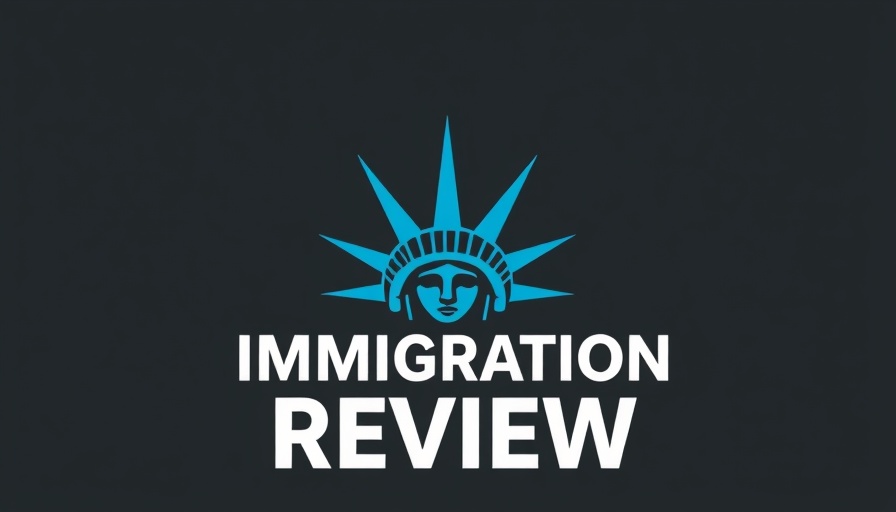
The Shifting Sands of Immigration Law: Recent Precedents Explained
In the week of July 7-13, 2025, significant developments emerged from the realm of immigration law that bear critical implications for both attorneys and their clients. Notably, several precedential decisions have been handed down by the Board of Immigration Appeals (BIA) that reflect changing attitudes toward asylum claims and discretionary relief, especially for individuals from regions like Russia and Haiti. These rulings underscore the need for legal practitioners to remain vigilant and informed in navigating the complex immigration landscape.
In Ep. 272 - Precedential Decisions from 7/7/2025 - 7/13/2025, the discussion dives into recent critical immigration rulings, exploring insights that sparked deeper analysis on our end.
Fee Increases: An Alarming Trend
One of the most pressing issues raised in the recent weeks is the substantial fee increases resulting from recent congressional legislation. As noted in Kevin A. Greg’s latest episode of Immigration Review, these hikes are already in effect, despite the U.S. Citizenship and Immigration Services (USCIS) portal yet to reflect these changes. This legislative move appears intentionally to discourage immigration filings, thereby necessitating careful attention from practitioners to ensure their clients' applications are appropriately managed under these new financial burdens.
Insights from Recent BIA Case Decisions
Three consequential rulings emerged from the BIA during this period, each affecting different aspects of immigration relief and asylum claims:
- Matter of EZ: This case dealt with Convention Against Torture (CAT) protection for a Russian national whose political opinions against the Ukraine War led him to be interrogated by authorities. The BIA ultimately vacated the immigration judge’s earlier grant of protection, emphasizing that mere interrogation does not satisfy the threshold for establishing past persecution.
- Matter of Gonzalez Jimenez: This ruling highlighted the BIA's discretionary power in cancellation of removal cases, emphasizing the importance of presenting offsetting favorable evidence in light of adverse factors, such as a DUI arrest. The case illustrates how past criminal conduct significantly impacts an individual’s immigration status, regardless of their long-standing residence in the U.S.
- Matter of SS: This decision revolved around a Haitian respondent with significant mental health challenges who was denied CAT protection. The BIA found insufficient evidence to substantiate a fear of torture upon return, thereby raising questions about the treatment of individuals with mental health issues in foreign detention facilities.
The Bigger Picture: Implications for Immigration Attorneys
These decisions reflect a broader trend where immigration authorities increasingly scrutinize claims and demand stringent proof of persecution or hardship. As Kevin A. Greg noted, immigration attorneys must develop strong arguments to counter the shifting legal landscape. This may involve leveraging new insights from BIA decisions and closely monitoring how renewed interpretations of past rulings could affect their clients’ cases.
Future Predictions: Navigating Legal Complexity Ahead
With a formidably shifting immigration framework, practitioners are advised to adapt and strategize effectively. The current political climate poses further challenges that immigration cases are likely to reflect, including heightened fees and stricter evidentiary requirements.
This landscape invites immigration attorneys to be proactive, leveraging technology and updated resources to streamline case management and document preparation. New integrations, such as those from e-Immigration and visalaw.ai, are designed to enhance workflow efficiency, enabling attorneys to devote more time to advocating for their clients rather than drowning in paperwork.
A Call to Action for Legal Practitioners
As the immigration landscape evolves, so too should the strategies employed by legal professionals. It is imperative to stay informed, adapt to new rulings, and effectively navigate changing norms in order to support the clients’ rights and needs effectively. By prioritizing education and utilizing technology, attorneys can ensure they remain effective advocates in an increasingly complicated legal environment.
 Add Row
Add Row  Add
Add 

 Add Row
Add Row  Add Element
Add Element 




Write A Comment